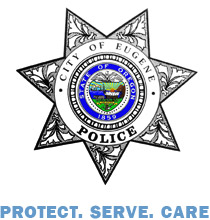 In Eugene, the police department is making a change in its radio system so that the public can no longer listen to its calls on scanners. Some other departments in Oregon and around the country have done the same, the Register-Guard reports, all in the interest of keeping criminals or suspects from knowing what the cops are up to. In a free country that’s a development that is sad to see.
In Eugene, the police department is making a change in its radio system so that the public can no longer listen to its calls on scanners. Some other departments in Oregon and around the country have done the same, the Register-Guard reports, all in the interest of keeping criminals or suspects from knowing what the cops are up to. In a free country that’s a development that is sad to see.
A Eugene police official told the paper there that officers responding to a call sometimes find the suspect listening to a scanner. If that’s true, then being able to listen to scanner traffic evidently hasn’t hampered the police in their work. If it had, the suspect would no longer have been there. Police don’t put sensitive information on the radio anyway. The scanner will never tell you about an impending drug raid early in the morning, for instance.
News organizations use scanners mostly to glean tips on local police calls for accidents or other emergencies. More important, some members of the public listen in as a hobby, as a form of entertainment.
Regardless of the reason, it seems to me there is great civic value in the general public being able to listen in on routine police calls. The police work for the public, after all. So the public has an interest in following what they do. For that reason, encrypting those transmissions as Eugene has done strikes me as wrong. (hh)
From Nancy Sturm via Facebook: I agree completely. I have been an occasional listener to scanner traffic since my days in the office at the Burbank Daily Review. We listen to the Rural Fire Dept. frequency now, a kind of sick redneck entertainment, I admit. I don’t listen to the police frequency because there is just too much chatter but was surprised once to hear the phone number and home address broadcast for a female traffic offender.
From Michele LaBounty, via Facebook: That afternoon in The Daily Tidings, I heard only a few words on the scanner – possible school bus crash on the Siskiyou Pass. Then I heard Neil Creek Road. I flew out of the newsroom with my camera and saying to you – “possible school bus crash!” A couple of rescue vehicles and I were the first at the scene. It was that horrible deadly bus crash over a ravine on I-5 in which Mt. Shasta High kids and others died. Thankfully, many survived. We were able to tell the story and show the tragedy because of a few words on a scanner.


Shutting the public out
A Eugene police official told the paper there that officers responding to a call sometimes find the suspect listening to a scanner. If that’s true, then being able to listen to scanner traffic evidently hasn’t hampered the police in their work. If it had, the suspect would no longer have been there. Police don’t put sensitive information on the radio anyway. The scanner will never tell you about an impending drug raid early in the morning, for instance.
News organizations use scanners mostly to glean tips on local police calls for accidents or other emergencies. More important, some members of the public listen in as a hobby, as a form of entertainment.
Regardless of the reason, it seems to me there is great civic value in the general public being able to listen in on routine police calls. The police work for the public, after all. So the public has an interest in following what they do. For that reason, encrypting those transmissions as Eugene has done strikes me as wrong. (hh)
From Nancy Sturm via Facebook: I agree completely. I have been an occasional listener to scanner traffic since my days in the office at the Burbank Daily Review. We listen to the Rural Fire Dept. frequency now, a kind of sick redneck entertainment, I admit. I don’t listen to the police frequency because there is just too much chatter but was surprised once to hear the phone number and home address broadcast for a female traffic offender.
From Michele LaBounty, via Facebook: That afternoon in The Daily Tidings, I heard only a few words on the scanner – possible school bus crash on the Siskiyou Pass. Then I heard Neil Creek Road. I flew out of the newsroom with my camera and saying to you – “possible school bus crash!” A couple of rescue vehicles and I were the first at the scene. It was that horrible deadly bus crash over a ravine on I-5 in which Mt. Shasta High kids and others died. Thankfully, many survived. We were able to tell the story and show the tragedy because of a few words on a scanner.
Tags: encryption, Eugene police, scanners